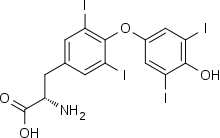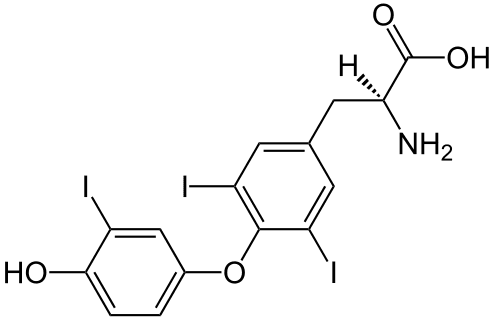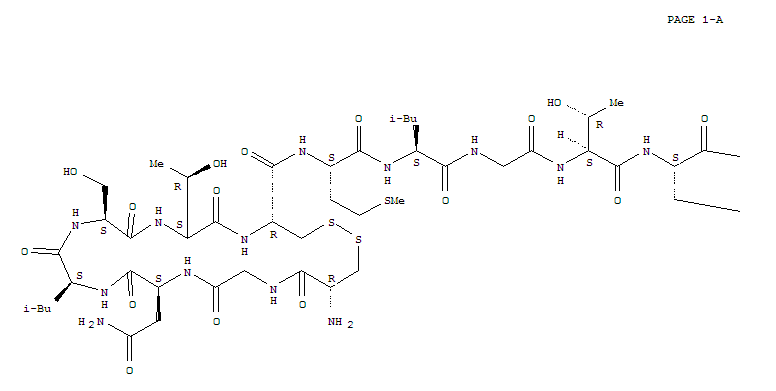Table of Contents
Introduction
In the endocrine system, there is a butterfly-shaped organ that is located at the base of a person’s neck. This is the thyroid and it plays a major role in the body by releasing hormones to control the body’s metabolism thus converting it into energy. The thyroid’s hormones help regulate all the vital bodily functions and help with the growth and development of the human body. When there are harmful pathogens that are entering the body and affect the thyroid it can cause an imbalance and lead to chronic diseases. When the thyroid produces an abundance or low quantities of hormones to be released in the body, it can cause hypo or hyperthyroidism and make a person not feel good. In this 3 part series, we will be taking a look and discussing how does a normal thyroid function and how disruptors can affect the thyroid. Part 2, will discuss what are the signs of low thyroid function and the symptoms. Part 3 will be taking a look at hyperthyroidism and how the elimination diet can help the thyroid. By referring patients to qualified and skilled providers who specialized in hormone wellness services and we advise our patients to appropriately refer to our associated medical providers based on their examination. We find that education is the key when asking valuable questions to our providers. Dr. Alex Jimenez DC provides this information as an educational service only. Disclaimer
Can my insurance cover it? Yes, in case you are uncertain here is the link to all the insurance providers we cover. If you have any questions, please call Dr. Jimenez at 915-850-0900.
What Is A Normal Thyroid Function?
Since we know that the thyroid is part of the endocrine system, it plays a huge role in the body since it is responsible for hormone production. Thyroid hormones help regulate the body’s weight, energy levels, and many more. The thyroid gland releases three hormones to assist the other parts of the endocrine system and these hormones are:
- T4 (Thyroxine)
- T3 (Triiodothyronine)
- Calcitonin
These three hormones are secreted out of the thyroid to help the body function properly. When the rest of the organs in the endocrine system needs these hormones from the thyroid, the thyroid will secret out T4 and T3 to the cells in the body, the liver, and the kidneys, giving them the nutrients that the other systems are lacking and making them function properly.
T4 (Thyroxine)
T4 or Thyroxine is one of the hormones that is secreted from the thyroid gland into the bloodstream. This hormone is one of the most important hormones in the thyroid because it is crucial in protecting the overall health of the body. Thyroxine’s function is that it travels through the bloodstream and then converts itself into T3 (triiodothyronine) and releases itself into the heart and digestive function, the body’s metabolism, brain development, bone health, and even muscle control. However, like all hormones, when there is overproduction or underproduction of thyroxine, it can lead to thyrotoxicosis, which is another form of hyperthyroidism and hypothyroidism and can even lead to goiter in the throat. So by regulating the T4 hormone, the body can function properly.
T3 (Triiodothyronine)
Triiodothyronine or T3 is the second most important hormone in the thyroid. It is made when T2 (thyroxine) is being converted into the bloodstream. This hormone is actually bound to the protein compounds in the body and is being traveled through each system, making sure that they are doing their job correctly. Most individuals when they are getting their routine check-ups with their doctors get a T3 test to make sure that the person’s thyroid doesn’t have any problems. Many doctors perform this test if they suspect that the patient’s thyroid has a problem and see what the patient needs to do in order to get their thyroid back to normal.
Calcitonin
Calcitonin is the third hormone that is secreted by the C-cells of the thyroid glands. However, calcitonin is known as the forgotten hormone since many people don’t recognize it and it is a 32 amino acid. When the thyroid releases calcitonin, it can help stimulate the calcium serum that is in the body and even help stimulate the gastrointestinal hormones. Another amazing function that calcitonin can provide to the body is that it can be increased and transfer maternal calcium to the fetus of an expecting mother. By transferring the maternal calcium to the infant, calcitonin can aid the prevention and recovery of maternal bone loss as well as increase bone mass and formation in the skeletal system.
How Disruptors Affect The Thyroid?
There are many factors that can disrupt the thyroid and can cause a dysfunction in the body system. These disruptors can be numerous factors that people go through in their daily lives. Sometimes it can be an overabundance of things that many people don’t even realize. Some of the disruptors are:
- Food allergy, intolerance, or sensitivity
- Chronic sleep deprivation
- Inflammatory diseases
- Oxidative Stress
- Hormone Imbalance
- Acute physical stress
- Physical trauma
- Autoimmune diseases
- Changes in gut microbiota
- Altered biotransformation
- Mitochondrial Dysfunction
- Single Nucleotide Polymorphisms (SNP’s)
Toxins & The Thyroid
When there are environmental exposures that are being released in the air, it can affect the thyroid function tremendously causing an increased risk for autoimmune diseases for the thyroid. When toxin pathogens enter the body system and start triggering autoimmune thyroid diseases, it can cause the thyroid hormones to go haywire and can make them produce too much or too little hormones for the body to function properly. Some of the triggering factors that can occur with autoimmune thyroid diseases can develop Graves’ disease and Hashimoto’s disease.
Disruptors Affecting The Endocrine System
Endocrine disruptors are an exogenous substance or mixture that alters function(s) of the endocrine system and consequently causes adverse health effects in an intact organism, or its progeny, or (sub) populations. This can be many factors that can affect the endocrine system but the primary factor is chemicals. There are many chemicals that are both natural and man-made that can actually interfere with the body’s hormones and disrupt the endocrine system. These chemicals can cause problems with the systems including:
Some of the chemical compounds can be found in everyday items like food containers, toys, cosmetics, and pesticides. When individuals are exposed to them on a daily basis, many don’t realize that the fumes can enter the body and over time can affect the endocrine system and many other systems. This can lead to many chronic illnesses that can cause painful symptoms that a healthy person would not have.
Conclusion
All in all, the thyroid is part of the endocrine system where its main role is to produce and release hormones throughout the entire body. When the thyroid doesn’t produce enough or too many hormones though, it can cause many chronic issues that can affect the body’s entire system causing the individual to be in pain and suffering. When the person eliminates those chronic pathogens from their system then they can start recovering and begin their health and wellness journey.
References
Brady, Bridget. “Thyroid Gland: Overview .” Endocrineweb, 23 Sept. 2021, https://www.endocrineweb.com/conditions/thyroid-nodules/thyroid-gland-controls-bodys-metabolism-how-it-works-symptoms-hyperthyroi.
Brent, Gregory A. “Environmental Exposures and Autoimmune Thyroid Disease.” Thyroid: Official Journal of the American Thyroid Association, Mary Ann Liebert, Inc., July 2010, https://www.ncbi.nlm.nih.gov/pmc/articles/PMC2935336/.
Felsenfeld, Arnold J, and Barton S Levine. “Calcitonin, the Forgotten Hormone: Does It Deserve to Be Forgotten?” Clinical Kidney Journal, Oxford University Press, Apr. 2015, https://www.ncbi.nlm.nih.gov/pmc/articles/PMC4370311/.
Holm, Gretchen. “T3 Test.” Healthline, Healthline Media, 19 Sept. 2019, https://www.healthline.com/health/t3.
IQWiG. “How Does the Thyroid Gland Work?” InformedHealth.org [Internet]., U.S. National Library of Medicine, 19 Apr. 2018, https://www.ncbi.nlm.nih.gov/books/NBK279388/.
Network, Hormone Health. “Thyroxine.” Thyroxine | Hormone Health Network, Hormone, 17 June 2019, https://www.hormone.org/your-health-and-hormones/glands-and-hormones-a-to-z/hormones/thyroxine.
Scientists, NIEHS. “Endocrine Disruptors.” National Institute of Environmental Health Sciences, U.S. Department of Health and Human Services, 12 July 2021, https://www.niehs.nih.gov/health/topics/agents/endocrine/index.cfm.
Disclaimer
Post Disclaimer
Professional Scope of Practice *
The information on this blog site is not intended to replace a one-on-one relationship with a qualified healthcare professional or licensed physician and is not medical advice. We encourage you to make healthcare decisions based on your research and partnership with a qualified healthcare professional.
Blog Information & Scope Discussions
Welcome to El Paso's Premier Wellness and Injury Care Clinic & Wellness Blog, where Dr. Alex Jimenez, DC, FNP-C, a board-certified Family Practice Nurse Practitioner (FNP-BC) and Chiropractor (DC), presents insights on how our team is dedicated to holistic healing and personalized care. Our practice aligns with evidence-based treatment protocols inspired by integrative medicine principles, similar to those found on this site and our family practice-based chiromed.com site, focusing on restoring health naturally for patients of all ages.
Our areas of chiropractic practice include Wellness & Nutrition, Chronic Pain, Personal Injury, Auto Accident Care, Work Injuries, Back Injury, Low Back Pain, Neck Pain, Migraine Headaches, Sports Injuries, Severe Sciatica, Scoliosis, Complex Herniated Discs, Fibromyalgia, Chronic Pain, Complex Injuries, Stress Management, Functional Medicine Treatments, and in-scope care protocols.
Our information scope is limited to chiropractic, musculoskeletal, physical medicine, wellness, contributing etiological viscerosomatic disturbances within clinical presentations, associated somato-visceral reflex clinical dynamics, subluxation complexes, sensitive health issues, and functional medicine articles, topics, and discussions.
We provide and present clinical collaboration with specialists from various disciplines. Each specialist is governed by their professional scope of practice and their jurisdiction of licensure. We use functional health & wellness protocols to treat and support care for the injuries or disorders of the musculoskeletal system.
Our videos, posts, topics, subjects, and insights cover clinical matters and issues that relate to and directly or indirectly support our clinical scope of practice.*
Our office has made a reasonable effort to provide supportive citations and has identified relevant research studies that support our posts. We provide copies of supporting research studies available to regulatory boards and the public upon request.
We understand that we cover matters that require an additional explanation of how they may assist in a particular care plan or treatment protocol; therefore, to discuss the subject matter above further, please feel free to ask Dr. Alex Jimenez, DC, APRN, FNP-BC, or contact us at 915-850-0900.
We are here to help you and your family.
Blessings
Dr. Alex Jimenez DC, MSACP, APRN, FNP-BC*, CCST, IFMCP, CFMP, ATN
email: coach@elpasofunctionalmedicine.com
Licensed as a Doctor of Chiropractic (DC) in Texas & New Mexico*
Texas DC License # TX5807
New Mexico DC License # NM-DC2182
Licensed as a Registered Nurse (RN*) in Texas & Multistate
Texas RN License # 1191402
ANCC FNP-BC: Board Certified Nurse Practitioner*
Compact Status: Multi-State License: Authorized to Practice in 40 States*
Graduate with Honors: ICHS: MSN-FNP (Family Nurse Practitioner Program)
Degree Granted. Master's in Family Practice MSN Diploma (Cum Laude)
Dr. Alex Jimenez, DC, APRN, FNP-BC*, CFMP, IFMCP, ATN, CCST
My Digital Business Card





